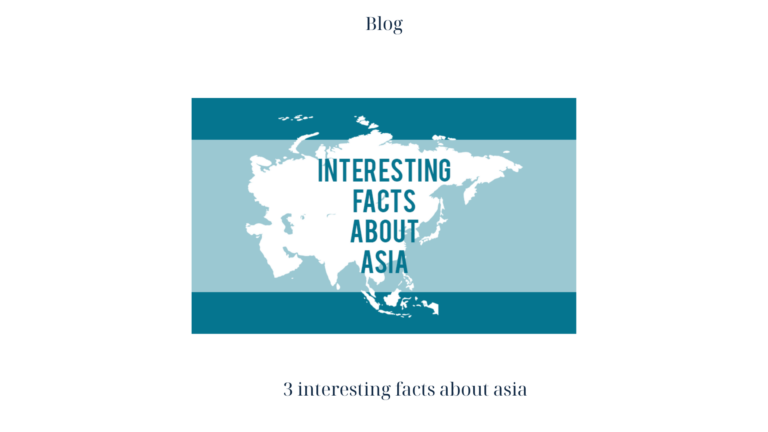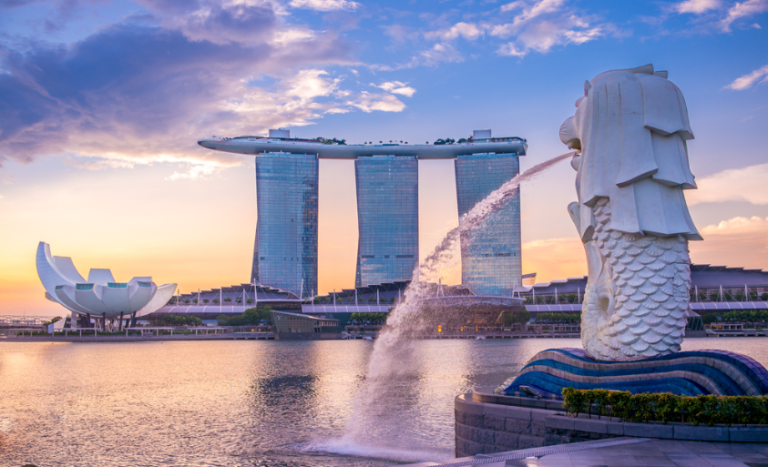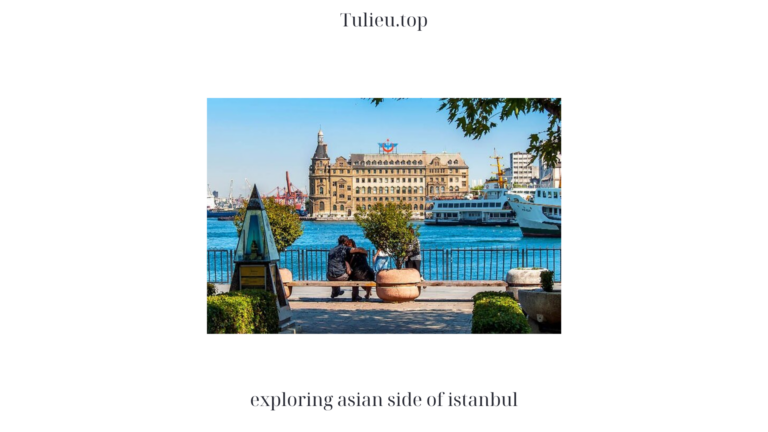How Was Germany Discovered? Formation Of Modern Germany
How was Germany discovered? Through historical ups and downs, Germany has marked tumultuous and meaningful journeys in the unification process. From the division between East and West during the Cold War to the joy of reunification in 1990, this journey is not only a page in German history but also a colorful picture of solidarity, recovery and the power of love for the homeland. Let’s find out with tulieu.top.
Some points about Germany
Germany, with its majestic history and cultural diversity, is a country located in the heart of Europe. This is not only the place where Germanic tribes have formed and developed since ancient times, but also the country that has endured major events in world history. From the ups and downs of the Holy Roman Empire to Otto von Bismarck’s efforts to unify the country, Germany has undergone a complex journey. World War II and subsequent division ended with reunification in 1990, creating a strong and unified Germany.
Have you heard about how was Germany discovered? Let’s continue to find out.
Germany’s economy, driven by its efficient manufacturing industry, is one of the main driving forces of the European Union. Famous automobile brands such as Volkswagen, BMW and Mercedes-Benz are not only symbols of quality, but also sources of inspiration in the global auto industry. Germany is not only famous for its economic achievements but also as a center of art and culture, with unique cultural and artistic works making their mark on the world.
Germany’s education and research system is highly appreciated, contributing to the country’s development. Universities like the University of Munich and Heidelberg University are ideal destinations for students around the world. Germany is also pioneering in protecting the environment and promoting renewable energy, demonstrating its commitment to sustainable development.
Have you heard about how was Germany discovered? Let’s continue to find out.
How was Germany discovered? Early History
The early history of Germany is marked by the presence of various Germanic tribes and the influence of neighboring civilizations. The region that is now Germany was inhabited by Germanic peoples as far back as the early centuries of the Common Era. These tribes, including the Saxons, Franks, and Alamanni, played a significant role in shaping the cultural and social landscape of the area.
During the Roman Empire, the territory of present-day Germany was part of the Roman provinces of Germania Superior and Germania Inferior. The Romans encountered resistance from Germanic tribes, and the Rhine River became a natural border between the Roman Empire and the Germanic territories. The Germanic tribes maintained their distinct identities and ways of life during this period.
The migration period (also known as the Barbarian Invasions) in the late antiquity (4th to 6th centuries) saw various Germanic tribes, such as the Visigoths, Vandals, and Ostrogoths, moving across Europe. The Huns’ invasion further spurred these migrations, leading to significant demographic changes in the region.
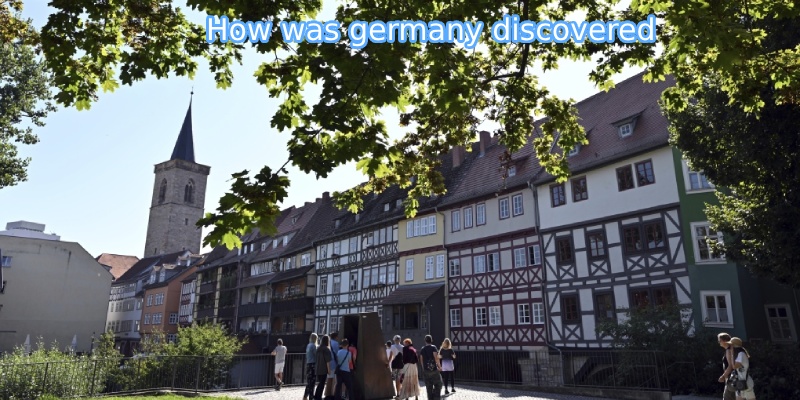
Have you heard about how was Germany discovered? Let’s continue to find out.
The Frankish Kingdom, established by the Merovingians in the 5th century, emerged as a dominant power in the area that is now France and western Germany. Under the leadership of King Clovis, the Franks converted to Christianity, marking the beginning of Christianization in the region.
During the early medieval period, the Holy Roman Empire, which was founded by Charlemagne (Charles the Great) in the 9th century, played a crucial role in shaping the political and cultural landscape of the region. The empire was a complex political entity, encompassing parts of modern-day Germany, Italy, and France.
The medieval period also saw the rise of powerful German feudal states and the Hanseatic League, a confederation of merchant guilds that contributed to economic and cultural development. However, the decentralized nature of the Holy Roman Empire led to internal conflicts and struggles for power.
Have you heard about how was Germany discovered? Let’s continue to find out.
How was Germany discovered? Formation of Modern Germany
Napoleonic Wars and the Confederation of the Rhine (1803–1815)
The Napoleonic era had a profound impact on the German states. Napoleon Bonaparte’s conquests and the dissolution of the Holy Roman Empire led to significant territorial and political changes.
The Confederation of the Rhine was established in 1806, replacing the fragmented Holy Roman Empire. It was a French-dominated alliance of German states, bringing about a sense of political reorganization in the region.
Congress of Vienna (1814–1815)
In the aftermath of the Napoleonic Wars, the Congress of Vienna aimed to restore stability to Europe. The German Confederation was created as a loose association of independent states, emphasizing the principles of conservatism and balance of power.
Zollverein (Customs Union) and Economic Integration (19th century)
The Zollverein, established in 1834, was a customs union that facilitated economic cooperation and trade among German states. This economic integration contributed to a growing sense of shared interests among the states.
Revolution of 1848 and Frankfurt Parliament
The year 1848 saw widespread uprisings across Europe, including in the German states. Calls for political reform and national unity emerged, leading to the convening of the Frankfurt Parliament.
The Frankfurt Parliament attempted to create a unified German state with a constitutional monarchy, but internal divisions and external pressures ultimately led to its failure.
Have you heard about how was Germany discovered? Let’s continue to find out.
Bismarck’s Wars of Unification (1864–1871)
Otto von Bismarck, the Chancellor of Prussia, played a pivotal role in the unification of Germany. Bismarck pursued a policy of Realpolitik, using military force and diplomacy to achieve his goals.
The Danish War (1864), Austro-Prussian War (1866), and Franco-Prussian War (1870-1871) were key conflicts that Bismarck orchestrated to weaken opponents and unify German states under Prussian leadership.
Proclamation of the German Empire (1871)
Following Prussia’s victory over France in 1871, the German Empire was officially proclaimed in the Hall of Mirrors at the Palace of Versailles. King Wilhelm I of Prussia became Emperor (Kaiser) of a united Germany.
The new German Empire was a federal state, with Prussia as the dominant power. The unification marked the end of the fragmented German Confederation and the beginning of modern Germany.
The formation of modern Germany, under the leadership of Otto von Bismarck, brought about significant political and geopolitical changes in Europe. The German Empire emerged as a major power, setting the stage for its role in subsequent global events.
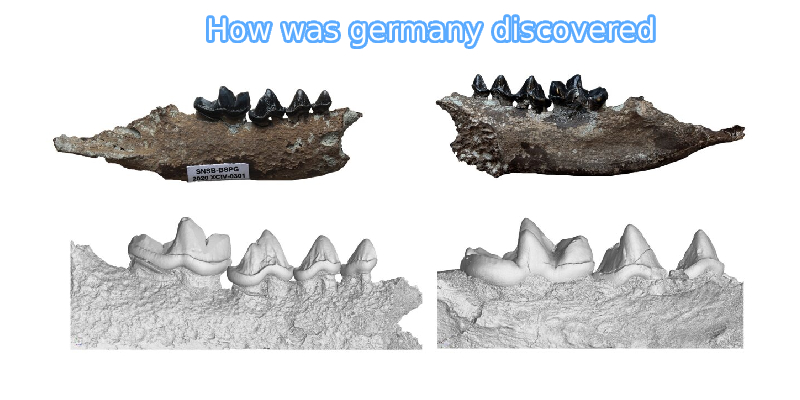
Have you heard about how was Germany discovered? Let’s continue to find out.
How was Germany discovered? 19th Century: The Path to Unification
Napoleonic Wars and Confederation of the Rhine (1803–1815)
The Napoleonic era had a profound impact on the German states. The French occupation, under Napoleon Bonaparte, led to the dissolution of the Holy Roman Empire and the establishment of the Confederation of the Rhine, a French-dominated union of German states.
Congress of Vienna (1814–1815) and German Confederation
The Congress of Vienna aimed to restore stability in Europe after the Napoleonic Wars. The German Confederation was established as a loose association of German states under the principles of conservatism and balance of power.
Zollverein (Customs Union) and Economic Cooperation (early 19th century)
The Zollverein, initiated in 1834, was a significant step towards economic integration among German states. The customs union facilitated trade and cooperation, laying the groundwork for a sense of shared economic interests.
Have you heard about how was Germany discovered? Let’s continue to find out.
Revolution of 1848 and Frankfurt Parliament
The widespread revolutions in 1848 saw demands for political reform and national unity. The Frankfurt Parliament was convened to discuss a constitution for a unified German state, but internal divisions and external pressures led to its ultimate failure.
Bismarck’s Realpolitik and Wars of Unification (1864–1871)
Otto von Bismarck, the Chancellor of Prussia, pursued a policy of Realpolitik to achieve German unification. The Danish War (1864), Austro-Prussian War (1866), and Franco-Prussian War (1870-1871) were orchestrated to weaken opponents and unite German states.
Bismarck’s diplomatic and military strategies successfully eliminated rivalries and paved the way for Prussian dominance.
Proclamation of the German Empire (1871)
Following the victory over France in 1871, the German Empire was proclaimed in the Hall of Mirrors at the Palace of Versailles. King Wilhelm I of Prussia became Emperor (Kaiser) of a united Germany.
The German Empire was a federal state with a constitutional monarchy, marking the end of the fragmented German Confederation and the beginning of modern Germany.
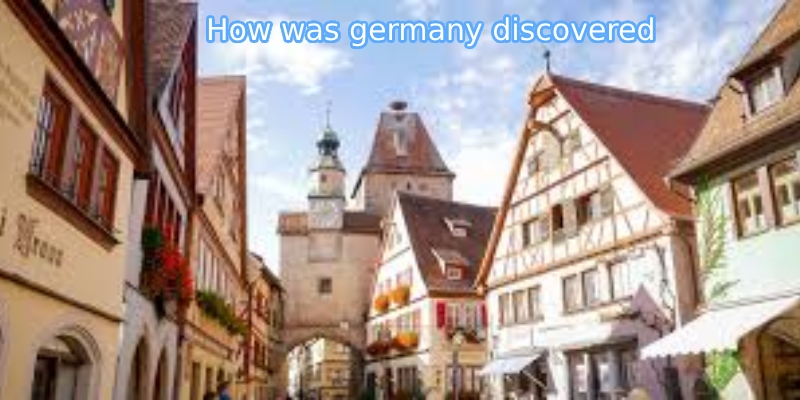
Have you heard about how was Germany discovered? Let’s continue to find out.
How was Germany discovered? 20th Century: Challenges and Transformations
World War I (1914–1918)
Germany played a central role in World War I as part of the Central Powers. The conflict had devastating effects on the country, both economically and socially. The Treaty of Versailles in 1919 imposed harsh reparations and territorial losses on Germany, leading to economic hardships and resentment.
Weimar Republic and Economic Challenges (1919–1933)
The aftermath of World War I saw the establishment of the Weimar Republic, a democratic government facing economic instability and political unrest. Hyperinflation, economic hardship, and political extremism characterized this period.
Rise of Nazi Germany and World War II (1933–1945)
Adolf Hitler and the Nazi Party rose to power in 1933, leading to the establishment of a totalitarian regime. The aggressive expansionist policies of Nazi Germany were a key factor in the outbreak of World War II in 1939.
The war had devastating consequences for Germany, including widespread destruction, loss of life, and the Holocaust. The country was divided into occupation zones by the Allies after Germany’s defeat in 1945.
Have you heard about how was Germany discovered? Let’s continue to find out.
Division of Germany (1949–1990)
After World War II, Germany was divided into East Germany (German Democratic Republic) and West Germany (Federal Republic of Germany). This division mirrored the broader Cold War dynamics between the Western and Eastern blocs.
The construction of the Berlin Wall in 1961 physically symbolized the separation, with East and West Berlin becoming starkly different entities.
Fall of the Berlin Wall and Reunification (1989–1990)
The peaceful protests and political changes in East Germany in 1989 led to the fall of the Berlin Wall on November 9, 1989. This pivotal moment marked the end of the Cold War division in Germany.
The reunification of East and West Germany was officially completed on October 3, 1990. The process brought about economic and social challenges as the two parts of the country integrated.
European Union and Modern Germany
Germany became a key player in the European Union (EU) and the Eurozone. The country’s economic strength and commitment to European integration have positioned it as a central force within the EU.
Germany has faced challenges related to issues such as immigration, economic disparities within the EU, and debates over its role in international affairs.
Post-Cold War Era and Global Role
The reunified Germany has become a major global player, contributing significantly to diplomacy, economic development, and international cooperation. It has played an active role in addressing global challenges, including climate change and refugee crises.
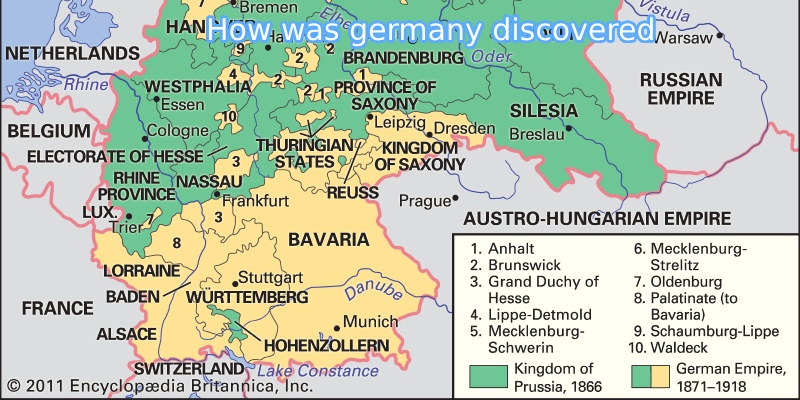
In conclusion
How was Germany discovered? Looking back, contemporary Germany has come to represent creativity and unity. In addition to being a significant historical turning point for this nation, the unification process teaches us about the power of unity, integration, and the ability of people to stand together.

